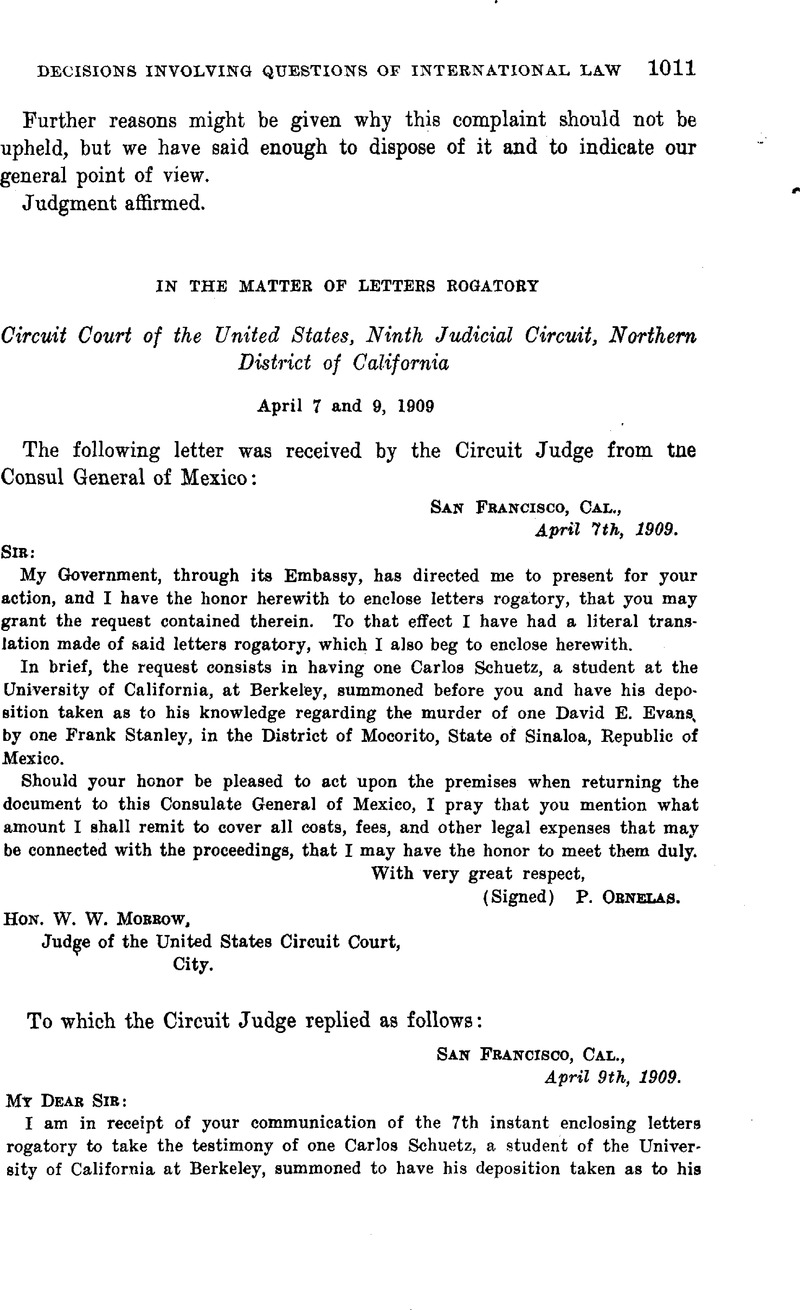The Process Involved in Filing Letters Rogatory: A Step-by-Step Guide
The Process Involved in Filing Letters Rogatory: A Step-by-Step Guide
Blog Article
The Role of Letters Rogatory in International Legislation: Secret Insights
Letters rogatory offer as a pivotal instrument in worldwide legislation, promoting cross-border lawful assistance by allowing jurisdictions to formally request evidence and actions from each other. Rooted in historical precedents and formalized through agreements like the 1970 Hague Convention, these requests are vital for fostering international collaboration. Their execution usually runs into considerable obstacles, including discrepancies in procedural hold-ups and legal standards, which can prevent their efficacy. Understanding the subtleties of this process raises critical inquiries regarding international partnership and the potential reforms required to enhance its reliability. What implications might these obstacles have for future legal proceedings?
Meaning of Letters Rogatory
In the world of international legislation, letters rogatory serve as formal requests issued by a court in one jurisdiction to look for support from a court in another jurisdiction. Letters rogatory. These demands are especially significant in cross-border legal process, where the enforcement of a court's order or the gathering of evidence might be impeded due to administrative limitations

The procedure usually requires the asking for court to articulate the specific details or activity needed from the international court, adhering to the legal procedures and conventions established in between the jurisdictions involved. When issued, the letters rogatory are sent with diplomatic networks, which may include consular offices or consulates, to ensure that the demand is recognized and acted on by the foreign court. On the whole, letters rogatory exhibit the participating framework important for reliable worldwide lawful processes.
Historic Context
Although the practice of letters rogatory has old roots, its formalization within the framework of global legislation arised dramatically in the 20th century. Historically, such ask for judicial support were made use of in various lawful practices, including Roman regulation, where they helped with cross-border collaboration in legal matters. The concept gained renewed focus with the rise of globalization and the increasing complexity of global legal interactions.
The mid-20th century saw the facility of treaties and conventions that sought to standardize the procedure of letters rogatory. Especially, the 1970 Hague Convention on the Taking of Evidence Abroad in Commercial or civil Matters supplied an organized approach, improving the efficiency of these demands - Letters rogatory. This duration noted a shift from casual setups to a more methodical structure, which resolved the difficulties posed by differing national legal systems
As states ended up being extra synergistic, the need for effective systems to collect proof throughout boundaries emerged, reinforcing the role of letters rogatory in assisting in worldwide teamwork. Today, they stay a crucial instrument for getting proof and making certain that justice goes beyond nationwide boundaries, reflecting the developing nature of worldwide legislation in action to worldwide difficulties.
Refine of Issuing Demands
The procedure of providing letters rogatory normally entails numerous important actions created to make sure that demands for judicial help are clear, certain, and compliant with both domestic and international legal standards. Initially, a party looking for help needs to prepare a formal request that lays out the important facts of the case, the alleviation looked for, and the particular evidence or testament needed. This record needs to be crafted with precision to fulfill the legal requirements of the territory in which it will certainly be submitted.
Adhering to the preparation of the demand, it is submitted to the appropriate authority, commonly a court or an assigned governmental firm. This authority examines the request to guarantee it read the article abides by procedural norms and lawful standards. Once accepted, the request is transferred to the foreign jurisdiction via polite channels.
Upon invoice, the foreign court examines the request's compliance with its neighborhood laws and techniques (Letters rogatory). If accepted, it continues to perform the demand, which may include the issuance of subpoenas or the collection of proof. Throughout this process, preserving clear interaction between the requesting and receiving territories is vital to ensure successful participation and the fulfillment of the demand
Obstacles and Limitations
Challenges and constraints often emerge in the process of implementing letters rogatory, typically stemming from varying legal systems and treatments in between territories. One considerable obstacle is the varying requirements of admissibility for evidence, use this link which can result in issues in the approval of paperwork asked for via letters rogatory. Furthermore, the absence of harmony in legal terminology and interpretations can create misunderstandings, making complex communication in between courts in different countries.
Moreover, delays are typical due to governmental procedures, as the demand may need to travel through multiple layers of lawful authorities prior to it is fulfilled. In some instances, the requested jurisdiction may do not have the needed resources or desire to work together, better impeding the process. Language obstacles likewise add to obstacles, as exact translation of lawful papers Full Report is critical for making certain that the desired message is shared without distortion.
Last but not least, sovereignty worries might occur, as some states are hesitant to adhere to requests that they regard as infringing upon their legal freedom. These challenges highlight the complexities inherent in making use of letters rogatory, demanding higher harmonization and collaboration among international lawful systems to boost their effectiveness.

Impact on International Teamwork
Identifying the importance of letters rogatory in promoting global cooperation is important, as these demands promote cross-border lawful assistance and promote collaborative efforts in civil and criminal issues. By making it possible for one jurisdiction to formally request assistance from another, letters rogatory create a structured legal framework that improves the performance of global interaction in between judicial authorities.
The usage of letters rogatory aids to develop common trust fund and regard amongst countries, which is crucial in a significantly interconnected globe. They function as a device not just for collecting evidence however likewise for guaranteeing that legal processes are upheld across boundaries. This is specifically vital in combating global criminal offense, where the failure to safeguard teamwork can undermine justice.
Furthermore, the dependence on letters rogatory can enhance intricate lawful process, lowering hold-ups and uncertainties in global examinations. The step-by-step safeguards inherent in this procedure add to the defense of individual rights while facilitating participation among states. Inevitably, the impact of letters rogatory on worldwide cooperation highlights their role as crucial tools in the promo of justice, promoting a joint spirit that goes beyond nationwide boundaries and lawful systems.
Conclusion
In conclusion, letters rogatory serve as an essential instrument in worldwide regulation, facilitating cross-border legal aid and collaboration. The ongoing development of these devices is crucial for enhancing the performance of global lawful processes, inevitably promoting more powerful partnership in both civil and criminal matters across territories.
Letters rogatory offer as an essential tool in international law, promoting cross-border legal aid by allowing territories to formally request proof and actions from one an additional.The procedure generally needs the asking for court to express the certain details or activity needed from the foreign court, sticking to the legal protocols and conventions developed between the jurisdictions involved. Historically, such demands for judicial help were utilized in different legal customs, including Roman legislation, where they assisted in cross-border participation in legal matters.The process of issuing letters rogatory generally involves several vital steps developed to guarantee that demands for judicial help are clear, specific, and compliant with both residential and international lawful requirements.Moreover, delays are common due to administrative procedures, as the request may need to pass via multiple layers of legal authorities prior to it is met.
Report this page